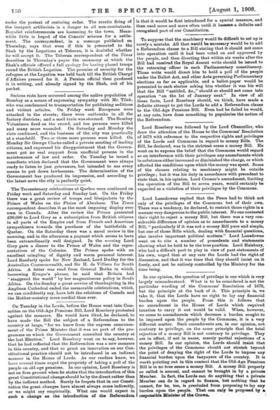In our opinion, the question of privilege is one which
is very largely misunderstood. What is to be considered is not the particular wording of the Commons' Resolution of 1678, but the principle at the back of it. This principle is, we take it, that the Lords have no right to lay any financial burden upon the people. From this it follows that no amendment in the House of Lords which required taxation to carry it out would be valid. When, however, we come to amendments which decrease a burden sought to be imposed upon the people by the Commons, it is a very different matter. Such amendments are, in our opinion, not contrary to privilege, on the same principle that the total rejection of a money Bill is not contrary to privilege. They are in effect, if not in name, merely partial rejections of a money Bill. In our opinion, the Lords should insist that the privileges of the Commons should not stretch beyond the point of denying the right of the Lords to impose any financial burden upon the taxpayers of the country. It is worth pointing out in this context that the Old-Age Pensions Bill is in no true sense a money Bill. A money Bill properly so called is annual, and cannot be brought in by a private Member. In fact, the Lords can do anything that a private Member can do in regard to finance, but nothing that he cannot, for he, too, is precluded from proposing to lay any burden upon the people. That can only be proposed by es responsible Minister of the Crown.


































 Previous page
Previous page